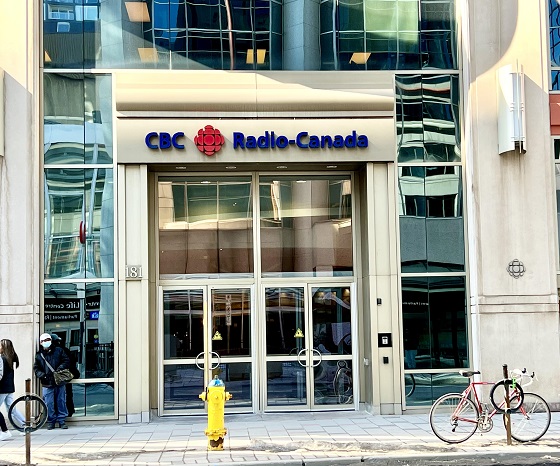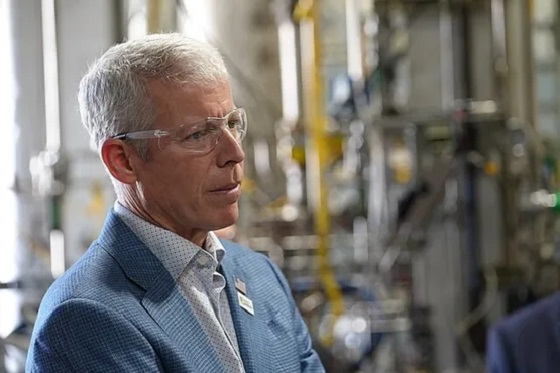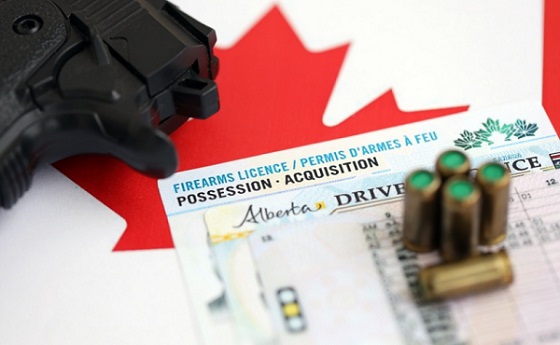Business
Even CBC’s friends are big mad about the big bonuses

From the Canadian Taxpayers Federation
Author: Kris Sims
This even weirder than the Masters of the Universe cartoon episode where the hero He-Man teamed up with the villain Skeletor to save Christmas.
The CBC doled out $18.4 million in bonuses. Meanwhile, the state broadcaster was also threatening to eliminate some positions just before Christmas. And that has even its “friends” upset.
A group called Friends of Canadian Media typically functions as a cheerleading squad for the CBC.
The group has praised the state broadcaster for years, comparing people who want it defunded to fans of professional wrestling – as if that’s a grave insult.
But this latest plot twist from the CBC even has its friends delivering a smack down.
In an email to supporters about the CBC bonuses, Friends of Canadian Media stated:
“This decision is deeply out of touch and unbefitting of our national public broadcaster.”
When it comes to these big bonuses, the CBC’s cheer team is now agreeing with the Canadian Taxpayers Federation that the bonuses are wrong.
Now, that’s where the agreement ends.
“CBC/Radio-Canada’s per capita funding currently sits at a 60-year low, thanks to decades of neglect from successive governments of all political stripes,” the group writes.
The CBC has “low funding” and is suffering from “neglect”?
The friends might want to lay off the kale smoothies for a bit because it sounds like they’re going fermented and that’s clouding their judgement.
The CBC’s government funding is astronomical and it gets an obscene amount of attention from our government, despite its ratings circling the drain.
The CBC’s taking $1.4 billion from taxpayers this year.
The money we spend on the CBC could pay the salaries of about 7,000 cops and 7,000 paramedics. It could buy more than 3,000 homes in Alberta. It would cover groceries for about 85,000 Canadian families for a year.
What the CBC costs taxpayers is the opposite of low funding.
The CBC has dished out $130 million in bonuses since 2015. There are 1,450 CBC staffers taking home six-figure salaries. Since 2015, the number of CBC employees taking a six-figure salary has soared by 231 per cent.
The Canadian Press reported that latest round of bonuses for executives at the CBC is more than $70,000 per person. That’s more than the average Canadian family takes home in a year.
The CEO of the CBC, Catherine Tait, is paid between $460,900 and $551,600 in salary per year. She’s also entitled to a bonus of up to 28 per cent. For the kids paying attention in math class, that’s a potential bonus of up to $154,448.
That’s a super weird form of low funding and neglect.
It’s got to be tough to land that woe-is-me message when millions get thrown around for bonuses.
Even a CBC news anchor asked her boss tough questions about the bonuses on national television.
“The Canadian Taxpayers Federation, through an FOI request, showed $16 million were paid in bonuses in 2022, can we establish that is not happening this year?” Adrienne Arsenault asked Tait on Dec. 4, 2023.
“I am not going to comment on something that hasn’t been discussed at this point,” Tait replied.
Turns out: those bonuses were in the works and now we know they’re costing taxpayers $18.4 million this year.
Meanwhile, Canadians are tuning out of the CBC while being forced to pay for it.
The CBC News Network’s share of the national prime-time viewing audience is 2.1 per cent, according to its latest third-quarter report.
Put another way, 97.9 per cent of TV-viewing Canadians choose not to watch CBC’s English language prime-time news program.
The CBC needs to be defunded. It’s a huge waste of money, a tiny handful of Canadians are tuning in and journalists should not be paid by the government. It’s a good bet the debate on that larger point will keep getting hotter.
But this part of the debate is down for the count: the outrageous CBC bonuses need to end.
When the Canadian Taxpayers Federation and Friends of Canadian Media agree on something, consensus has been achieved and the fight’s over.
Kris Sims is the Alberta Director for the Canadian Taxpayers Federation and a former member of the Parliamentary Press Gallery.
Business
US Energy Secretary says price of energy determined by politicians and policies


From the Daily Caller News Foundation
During the latest marathon cabinet meeting on Dec. 2, Energy Secretary Chris Wright made news when he told President Donald Trump that “The biggest determinant of the price of energy is politicians, political leaders, and polices — that’s what drives energy prices.”
He’s right about that, and it is why the back-and-forth struggle over federal energy and climate policy plays such a key role in America’s economy and society. Just 10 months into this second Trump presidency, the administration’s policies are already having a profound impact, both at home and abroad.
While the rapid expansion of AI datacenters over the past year is currently being blamed by many for driving up electric costs, power bills were skyrocketing long before that big tech boom began, driven in large part by the policies of the Obama and Biden administration designed to regulate and subsidize an energy transition into reality. As I’ve pointed out here in the past, driving up the costs of all forms of energy to encourage conservation is a central objective of the climate alarm-driven transition, and that part of the green agenda has been highly effective.
Dear Readers:
As a nonprofit, we are dependent on the generosity of our readers.
Please consider making a small donation of any amount here.
Thank you!
President Trump, Wright, and other key appointees like Interior Secretary Doug Burgum and EPA Administrator Lee Zeldin have moved aggressively throughout 2025 to repeal much of that onerous regulatory agenda. The GOP congressional majorities succeeded in phasing out Biden’s costly green energy subsidies as part of the One Big Beautiful Bill Act, which Trump signed into law on July 4. As the federal regulatory structure eases and subsidy costs diminish, it is reasonable to expect a gradual easing of electricity and other energy prices.
This year’s fading out of public fear over climate change and its attendant fright narrative spells bad news for the climate alarm movement. The resulting cracks in the green facade have manifested rapidly in recent weeks.
Climate-focused conflict groups that rely on public fears to drive donations have fallen on hard times. According to a report in the New York Times, the Sierra Club has lost 60 percent of the membership it reported in 2019 and the group’s management team has fallen into infighting over elements of the group’s agenda. Greenpeace is struggling just to stay afloat after losing a huge court judgment for defaming pipeline company Energy Transfer during its efforts to stop the building of the Dakota Access Pipeline.
350.org, an advocacy group founded by Bill McKibben, shut down its U.S. operations in November amid funding woes that had forced planned 25 percent budget cuts for 2025 and 2026. Employees at EDF voted to form their own union after the group went through several rounds of budget cuts and layoffs in recent months.
The fading of climate fears in turn caused the ESG management and investing fad to also fall out of favor, leading to a flood of companies backtracking on green investments and climate commitments. The Net Zero Banking Alliance disbanded after most of America’s big banks – Goldman Sachs, J.P. Morgan Chase, Citigroup, Wells Fargo and others – chose to drop out of its membership.
The EV industry is also struggling. As the Trump White House moves to repeal Biden-era auto mileage requirements, Ford Motor Company is preparing to shut down production of its vaunted F-150 Lightning electric pickup, and Stellantis cancelled plans to roll out a full-size EV truck of its own. Overall EV sales in the U.S. collapsed in October and November following the repeal of the $7,500 per car IRA subsidy effective Sept 30.
The administration’s policy actions have already ended any new leasing for costly and unneeded offshore wind projects in federal waters and have forced the suspension or abandonment of several projects that were already moving ahead. Capital has continued to flow into the solar industry, but even that industry’s ability to expand seems likely to fade once the federal subsidies are fully repealed at the end of 2027.
Truly, public policy matters where energy is concerned. It drives corporate strategies, capital investments, resource development and movement, and ultimately influences the cost of energy in all its forms and products. The speed at which Trump and his key appointees have driven this principle home since Jan. 20 has been truly stunning.
David Blackmon is an energy writer and consultant based in Texas. He spent 40 years in the oil and gas business, where he specialized in public policy and communications.
Business
Oil tanker traffic surges but spills stay at zero after Trans Mountain Expansion

From the Canadian Energy Centre
Bigger project maintains decades-long marine safety record
The Trans Mountain system continues its decades-long record of zero marine spills, even as oil tanker traffic has surged more than 800 per cent since the pipeline’s expansion in May 2024.
The number of tankers calling at Trans Mountain’s Westridge Marine Terminal in the Port of Vancouver in one month now rivals the number that used to go through in one year.
A global trend toward safer tanker operations
Trans Mountain’s safe operations are part of a worldwide trend. Global oil tanker traffic is up, yet spills are down, according to the International Tanker Owners Pollution Federation, a London, UK-based nonprofit that provides data and response support.
Transport Canada reports a 95 per cent drop in ship-source oil spills and spill volumes since the 1970s, driven by stronger ship design, improved response and better regulations.
“Tankers are now designed much more safely. They are double-hulled and compartmentalized to mitigate spills,” said Mike Lowry, spokesperson for the Western Canada Marine Response Corporation (WCMRC).
WCMRC: Ready to protect the West Coast

One of WCMRC’s new response vessels arrives in Barkley Sound. Photo courtesy Western Canada Marine Response Corporation
From eight marine bases including Vancouver and Prince Rupert, WCMRC stands at the ready to protect all 27,000 kilometres of Canada’s western coastline.
Lowry sees the corporation as similar to firefighters — training to respond to an event they hope they never have to see.
In September, it conducted a large-scale training exercise for a worst-case spill scenario. This included the KJ Gardner — Canada’s largest spill response vessel and a part of WCMRC’s fleet since 2024.
“It’s part of the work we do to make sure everybody is trained and prepared to use our assets just in case,” Lowry said.
Expanding capacity for Trans Mountain

The K.J. Gardner is the largest-ever spill response vessel in Canada. Photo courtesy Western Canada Marine Response Corporation
WCMRC’s fleet and capabilities were doubled with a $170-million expansion to support the Trans Mountain project.
Between 2012 and 2024, the company grew from 13 people and $12 million in assets to more than 200 people and $213 million in assets.
“About 80 per cent of our employees are mariners who work as deckhands, captains and marine engineers on our vessels,” Lowry said.
“Most of the incidents we respond to are small marine diesel spills — the last one was a fuel leak from a forest logging vessel near Nanaimo — so we have deployed our fleet in other ways.”
Tanker safety starts with strong rules and local expertise

Tanker loading at the Westridge Marine Terminal in the Port of Vancouver. Photo courtesy Trans Mountain Corporation
Speaking on the ARC Energy Ideas podcast, Trans Mountain CEO Mark Maki said tanker safety starts with strong regulations, including the use of local pilots to guide vessels into the harbour.
“On the Mississippi River, you have Mississippi River pilots because they know how the river behaves. Same thing would apply here in Vancouver Harbour. Tides are strong, so people who are familiar with the harbor and have years and decades of experience are making sure the ships go in and out safely,” Maki said.
“A high standard is applied to any ship that calls, and our facility has to meet very strict requirements. And we have rejected ships, just said, ‘Nope, that one doesn’t fit the bill.’ A ship calling on our facilities is very, very carefully looked at.”
Working with communities to protect sensitive areas
Beyond escorting ships and preparing for spills, WCMRC partners with coastal communities to map sensitive areas that need rapid protection including salmon streams, clam beds and culturally important sites like burial grounds.
“We want to empower communities and nations to be more prepared and involved,” Lowry said.
“They can help us identify and protect the areas that they value or view as sensitive by working with our mapping people to identify those areas in advance. If we know where those are ahead of time, we can develop a protection strategy for them.”
-

 National12 hours ago
National12 hours agoMedia bound to pay the price for selling their freedom to (selectively) offend
-

 Bruce Dowbiggin11 hours ago
Bruce Dowbiggin11 hours agoSometimes An Ingrate Nation Pt. 2: The Great One Makes His Choice
-

 COVID-192 days ago
COVID-192 days agoUniversity of Colorado will pay $10 million to staff, students for trying to force them to take COVID shots
-

 Business2 days ago
Business2 days agoOil tanker traffic surges but spills stay at zero after Trans Mountain Expansion
-

 Energy2 days ago
Energy2 days agoELZABETH MAY HAS IT WRONG: An Alberta to Prince Rupert Oil Pipeline Will Contribute to Greater Global Oil Tanker Safety
-

 Censorship Industrial Complex2 days ago
Censorship Industrial Complex2 days agoJustice Centre campaigning Canadian provinces to follow Alberta’s lead protecting professionals
-

 National2 days ago
National2 days agoAlberta will use provincial laws to stop Canadian gov’t from trying to confiscate legal firearms
-

 COVID-192 days ago
COVID-192 days agoCanadian legislator introduces bill to establish ‘Freedom Convoy Recognition Day’ as a holiday







